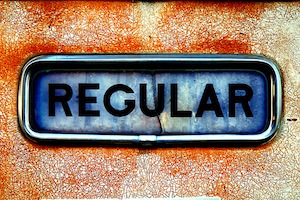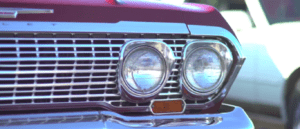Protecting Your Ride From the New Ethanol Blend
A new policy approved by the EPA will allow states to permit the sale of fuel that contains up to 15 percent ethanol, and the difference could damage your car.
A new policy approved by the EPA will allow states to permit the sale of fuel that contains up to 15 percent ethanol, and the difference could damage your car.
Ten states currently require gas to include 10 percent ethanol, usually derived from corn, reports Kate Sheppard of Mother Jones. Eighty percent of gasoline consumed in the U.S. is blended with the stuff. As some states, especially in the corn-producing region of the Midwest, begin to take advantage of the new allowance, people who own certain makes and models and aren’t paying attention at the pump will risk ruining their engines in ways that are not covered by manufacturer warranties. BMW, Chrysler, Nissan, Toyota and Volkswagen have explicitly said so, while eight other companies have warned of the possibility.
— Posted by Alexander Reed Kelly.
Your support matters…Kate Sheppard at Mother Jones:
A few weeks ago, AAA issued a statement saying that the EPA’s new policy creates the “strong likelihood of consumer confusion and the potential for voided warranties and vehicle damage.” The worry is that people will put E15 in their cars without realizing it. AAA surveyed vehicle manufacturers, and found that only about 12 million of the 240 million vehicles on the roads today are built to use E15 gasoline.
… Brian Lyons, Toyota’s safety and quality communications manager, told me that the problem is that “nobody really knows what negative effects [E15 is] going to have on the vehicle.” While the company is now working on cars that can run on the new blend, the existing models weren’t built for that.
It’s not that filling up with E15 one time will screw up my engine, Lyons said. Rather, the concern is that repeated, long-term exposure could cause the higher-alcohol-content fuel to degrade engine parts like valves and cylinder heads—which could potentially cost thousands of dollars to replace. Short-term, I may notice that my car isn’t performing as well. My “check engine” light might come on. And it could keep coming on, repeatedly, which is probably more annoying than dangerous.
Independent journalism is under threat and overshadowed by heavily funded mainstream media.
You can help level the playing field. Become a member.
Your tax-deductible contribution keeps us digging beneath the headlines to give you thought-provoking, investigative reporting and analysis that unearths what's really happening- without compromise.
Give today to support our courageous, independent journalists.





You need to be a supporter to comment.
There are currently no responses to this article.
Be the first to respond.